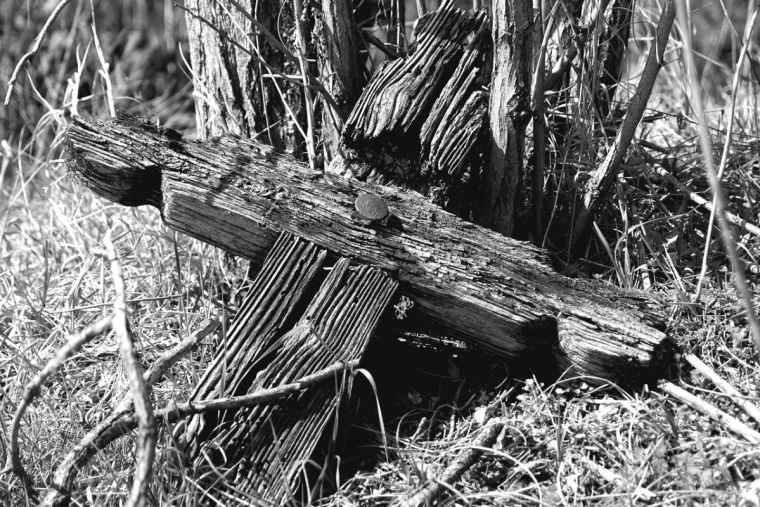Delving deep into the darkness – how Holy Week helps us appreciate Easter...

Ask the average evangelical what their church experience consists of and somewhere near the top of the list will come preaching, Bible teaching, personal reading of scripture and so on. The importance of hearing the word and having it applied to our lives has been drilled into us from a young age.
Since the Enlightenment, knowledge has been the primary goal of Western education – and this has had a direct impact on the Church – especially protestant evangelicalism.
After the Reformation, many of us left behind the more extravagant expressions of faith and they were replaced with the quest for knowledge.
Go into the average reformed church and you'll see the pulpit at the centre, with plain décor elsewhere to draw your attention towards the main event – the sermon.
Though this focus is important, it isn't the full picture of faith. As well as minds, we are bodies – with eyes, noses and hands as well as ears to hear a message.
The ancient practice of marking Holy Week - the seven days running up to Easter – enables us to engage all these senses.
Holy Week begins with Palm Sunday. Marking Jesus' triumphal entry into Jerusalem, palm crosses are waved. These represent the palm branches held by the crowds who welcomed Jesus into the Holy City. Shouts of Hosanna and sometimes a donkey will accompany the procession. Instead of merely hearing about Palm Sunday, we are transformed to being members of a crowd which helps us to gain an insight into those who, only days later, would be calling for Jesus' death as part of a much less celebratory crowd.
The next big occasion in Holy Week is Maundy Thursday – on which the Last Supper is commemorated. Many churches mark this occasion with a meal of some kind – usually incorporating a communion service. Often, foot washing will feature in a direct recollection of Jesus washing His disciples feet.
As Maundy Thursday goes on, many churches stay open to allow the congregation to 'watch and pray' as Jesus asked His disciples to do. Sometimes the chancel of the church or another area will be set aside as a 'garden of repose'. This will usually have an altar where the bread which has been consecrated during the communion will be kept for use on Good Friday. The altar will be stripped and the light above the tabernacle where the reserved communion host is kept will be extinguished for the only time in the year to indicate the coming darkness.
Moving onto the Friday itself, there are of course a large number of traditions, from walks of witness through to events in churches. Veneration of the cross, prostration and use of stations of the cross are all commonly observed. Less liturgically inclined churches will still often be open for contemplation of Good Friday.
Some will fast on Good Friday – maybe even through until the Easter vigil itself. The last seven sayings of Jesus from the cross will often form the basis of Good Friday services as a way of focusing on the experience Jesus went through on the first Good Friday.
Holy Saturday (not Easter Saturday as some mistakenly call it) is also known as Easter Eve. While the light on the tabernacle remains out we recall the time when Jesus was dead and hope seemed gone. Services will be limited and little activity will be observed until nightfall. Then the Easter vigil may begin. Sometimes the vigil is held on the Saturday evening, sometimes through the night, and sometimes worshippers will gather before dawn to light the paschal (Easter) candle, sing the Gloria and other songs of celebration. Easter is upon us... But that's for another article!
What has struck me most about partaking in these events is that they are filled with darkness and foreboding. We know how the story ends, yet we are encouraged to embrace the darkness, rather than rushing into to the glorious news which comes on the Sunday. This is a profoundly realistic view of how faith should work – rather than simply providing answers to us straight away, the Christian faith acknowledges the darkness in us and in our world. It shows us in a visceral way how Jesus experienced that darkness. It allows real time and space for that to sink in before we get to the victorious end point.
Hearing the word is vital. But living through some of the passion narrative has a power of its own. Pressing into the darkness before experiencing the light helps us to experience the true significance of the end of the story.
Have a blessed and profound Holy Week...











